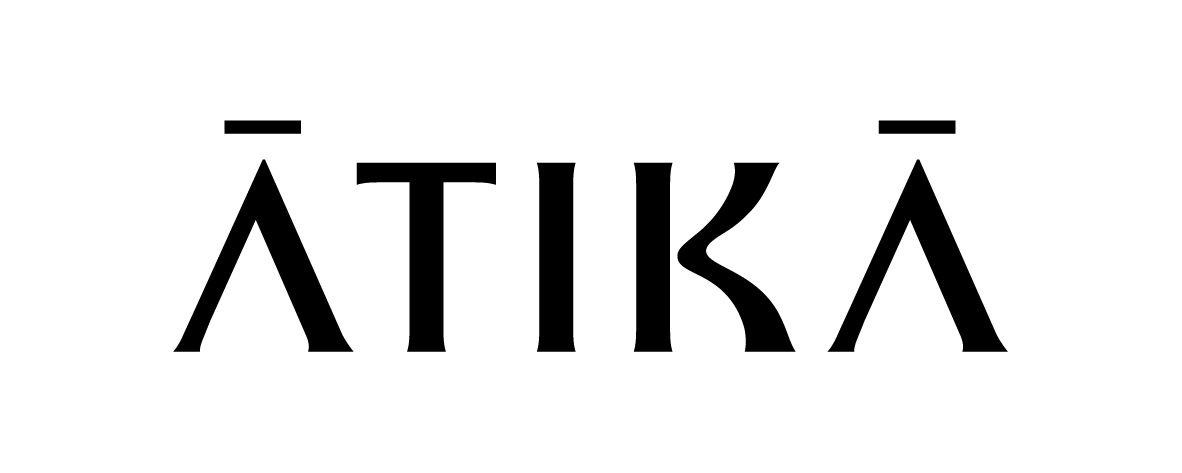
Marine vs. Bovine Collagen: What the Science Actually Says.
Why ATIKA™ Chose Verisol® — and How It Outperforms ‘Cleaner and More Bioavailable’ Marine Collagen
You’ve probably heard that marine collagen is better – but is that actually true?
Claims about marine collagen being cleaner, more bioavailable, and more effective for skin are everywhere. But when you move past marketing and into real data, the story shifts.
ATIKA formulates for results, not trends. We chose Verisol, a clinically studied bovine peptide, because the evidence is stronger than for even wild‑caught marine collagen.¹
Here’s why that matters.
Clinically Proven to Transform Skin
When people search “marine vs. bovine collagen,” they’re really asking: which one delivers visible results?
Verisol is one of the few collagen peptides validated in placebo‑controlled human trials. At 2.5 g/day – the dose in every scoop of Advanced Skin Nutrition – participants showed measurable gains in hydration, elasticity, and wrinkle depth within 4 to 12 weeks.¹
Most marine collagen products cite generic research – rarely on their specific formula or dose. That makes the link between product and outcome unclear.²
Bioavailability: The Myth vs. The Reality
Once collagen is enzymatically hydrolyzed into di‑ and tri‑peptides, current evidence shows that absorption is generally comparable across sources.³ Marine collagen peptides tend to be slightly smaller in molecular weight and may absorb marginally faster, but no clinical research has demonstrated that this size difference leads to better results in human skin.³
The factor that counts most is whether a specific collagen peptide has been proven to improve skin health in robust human clinical trials — something Verisol® has achieved repeatedly,¹ whereas most marine collagens have not yet demonstrated with comparable evidence.
What Is Verisol — and Why It’s Different
Verisol isn't just a collagen source – it's a patented, clinically optimized bioactive peptide complex developed specifically for skin.⁵
It contains hydrolyzed collagen types I and III, the two most relevant types for skin structure and elasticity.⁴ Available in bovine, porcine, or marine form,⁵ Verisol is engineered to stimulate collagen metabolism at the precise peptide size and dose that delivers visible beauty results.
At ATIKA, we use bovine‑derived Verisol, chosen for its:
- Strong human clinical data
- High purity
- Traceable sourcing
- Production under rigorous quality standards
It delivers real benefits – wrinkle reduction, firmer skin, improved hair and nails – at just 2.5 g per day.¹ Because more isn't better – better is better.
A Note on Collagen Types
Types I and III collagen are the two most important types for skin health because:
- Type I collagen makes up the majority of collagen in the skin (about 80–90%). It forms strong fibers that provide structure, firmness, and tensile strength — essential for a youthful, resilient appearance.⁴
- Type III collagen is commonly found alongside Type I in the skin’s deeper layers. It contributes to the skin’s elasticity and flexibility, supporting “stretch and snap back” ability and aiding in repair processes.⁴
Together, Types I and III form the matrix that gives skin its strength, smoothness, and ability to resist sagging or wrinkling as we age.⁴ Most clinically effective skin‑focused collagen peptides - including Verisol - are specifically hydrolyzed from these two types because of their central roles in maintaining skin’s structure and youthful qualities.
Evolving Science of Marine Collagen
High‑quality marine collagens are emerging.⁶ A few brands now publish clinical and contaminant data on wild‑caught, transparently sourced fish.⁶ Early trials show promise, but studies are fewer, smaller, and rarely tied to a retail dose. A handful of rigorously designed, placebo‑controlled RCTs have reported improvements in hydration and elasticity with 1–5g/day fish‑derived collagen peptides, yet sample sizes remain modest and dosing consistency varies.² ⁶ For now, product‑specific marine evidence is still the exception.⁶
Standardized, Consistent, and Clean
Every scoop of Verisol is fully standardized and batch‑tested, delivering the same amino‑acid profile, molecular weight, and clinically effective dose.⁵
Because marine collagen isn’t typically standardized by species or peptide size, its composition can vary — which may affect consistency from batch to batch.⁷
 Verisol® is a registered trademark of Gelita AG.
Verisol® is a registered trademark of Gelita AG.
The Problem with Farmed Fish Collagen
Many consumers are unaware of the risks around farm‑fish collagen contaminants. Most marine collagen comes from farmed fish, including lower‑cost species like tilapia or pangasius.⁸ These fish are often raised in crowded tanks, exposed to poor water quality, and treated with antibiotics or pesticides.⁸
That environment increases the risk of chemical residues, heavy metals, and microplastics – all of which can accumulate in the skin and scales used to make collagen.⁹
Most brands don’t disclose whether their marine collagen is farmed or wild, and few offer third‑party contaminant testing.⁹ Quality varies widely; reputable producers now publish batch‑level results for heavy metals and microplastics, but they’re still the exception.⁷ ⁹
Verisol is sourced from cattle raised on pastures across the European Union – primarily Germany – where the use of growth hormones in livestock is banned.¹⁰ This regulatory environment ensures higher standards for animal welfare and ingredient quality.
Wild‑Caught Marine Collagen Safety
Even when marine collagen is labeled wild‑caught, it isn’t necessarily clean.¹¹ Oceans today are increasingly polluted. Wild fish are exposed to microplastics, mercury, arsenic, and industrial waste – especially in collagen‑rich tissues like skin.⁹ ¹¹ And marine collagen isn’t purified to pharmaceutical standards.¹¹
What’s more, wild‑caught collagen is often not standardized by species, season, or peptide profile, which can introduce batch variability⁷. Without traceability or batch‑level testing, 'wild‑caught' may function more as a marketing label than a quality guarantee.⁹
Better Value for Proven Results
It’s also worth asking: what are you paying for? Marine collagen – especially wild caught – is often priced at a premium despite a less mature clinical record (≈ $45,000/t for marine vs ≈ $33,000/t for bovine).¹² Verisol delivers reproducible results at a lower effective dose, making it the better value per proven benefit¹.
Marine Collagen Isn’t Bad — It’s Just Not Optimized
To be clear: marine collagen isn’t bad. It’s a good source of collagen peptides for skin, particularly Type I, and may support general wellness. It’s also a practical option for those avoiding bovine or porcine sources for dietary or religious reasons. But until more rigorously studied, standardized marine collagens hit the market, Verisol remains the gold‑standard peptide complex for visible skin change.
The bottom line
Multiple dermatology reviews show that dermal collagen peaks in the early twenties and then slips by roughly 1% a year from the mid‑twenties onward.¹³ Hormonal change accelerates the trend: women lose about 30% of their skin’s collagen in the first five years after menopause,¹⁴ after which the decline slows to around 2% per year.¹⁴ This leaves skin thinner and less resilient. Supporting collagen turnover early and consistently is therefore essential to keep firmness and glow.
Verisol delivers a precise peptide fingerprint that has been validated in multiple placebo‑controlled human trials at the same 2.5 g dose found in every scoop of ATIKA's Advanced Skin Nutrition, yielding measurable gains in elasticity, hydration, and wrinkle depth.¹
Marine collagen research is improving, and as more brands offer dose‑controlled data and transparent sourcing, high‑quality fish‑derived collagens may become strong contenders.⁶ For now, Verisol’s reproducible evidence and full traceability give it a clear edge for anyone seeking visible, science‑backed results.
Experience the difference: Verisol is just one of 18 clinically studied, therapeutically dosed actives working together in ATIKA’s all‑in‑one, foundational skin‑nutrition formula.
References
1. Proksch E, Schunck M, Zague V, Segger D, Degwert J, Oesser S. Oral intake of specific bioactive collagen peptides reduces skin wrinkles and increases dermal matrix synthesis. Skin Pharmacol Physiol. 2014;27(3): 113-119. doi:10.1159/000351376.
2. Evans M, Lewis E D, Zakaria N, Pelipyagina T, Guthrie N. A randomized, triple blind, placebo controlled study to evaluate the efficacy of a freshwater marine collagen on skin wrinkles and elasticity. J Cosmet Dermatol. 2021;20(3):825 834. doi:10.1111/jocd.13676.
3. Virgilio N, Schön C, Mödinger Y, et al. Absorption of bioactive peptides following collagen hydrolysate intake: a randomized, double blind crossover study in healthy individuals. Front Nutr. 2024;11:1416643. doi:10.3389/fnut.2024.1416643 Frontiers
4. Wang H. A Review of the Effects of Collagen Treatment in Clinical Studies. Polymers (Basel). 2021;13(22):3868. doi:10.3390/polym13223868 PMC.
5. GELITA. FAQ — Verisol®. Accessed July 2025. https://www.gelita.com/en/faq/verisol gelita.com. Accessed July 2025.
6. Kim D U, Chung H C, Choi J, Sakai Y, Lee B Y. Oral intake of fish collagen peptide improves skin hydration and elasticity: a 12 week randomized, double blind, placebo controlled study. J Cosmet Dermatol. 2018;17(1):70 78. doi:10.1111/jocd.12402.
7. León López A, Morales Peñaloza A, Martínez Juárez VM, et al. Variability in fish derived collagen hydrolysates: influence of species and processing on peptide profile and functional properties. Food Sci Hum Wellness. 2019;8(4):392 398. doi:10.1016/j.fshw.2019.08.008.
8. FAO Fisheries & Aquaculture Division. Use of antimicrobials and pesticides in aquaculture and their implications for residues. FAO Fisheries Technical Paper No. 634; 2020.
9. Barboza LG, Vieira LR, Branco V, et al. Microplastics cause neurotoxicity, oxidative damage, and energy related changes in zebrafish. Sci Total Environ. 2018;631 632:1358 1367. doi:10.1016/j.scitotenv.2018.04.113.
10. European Commission. Council Directive 96/22/EC concerning the prohibition on the use in stock farming of certain substances having a hormonal or thyrostatic action. Official Journal of the European Communities. 1996.
11. United Nations Environment Programme. Global Mercury Assessment 2019: Sources, Emissions, Releases and Environmental Transport. UNEP Chemicals and Health Branch; 2019.
12. Meat & Livestock Australia. Global Collagen Peptide Market: Business Case Analysis (citing QY Research 2018 price table). MLA Market Insights; 2019.
13. Shuster S, Black MM, McVitie E. The influence of age and sex on skin thickness, skin collagen and density. Br J Dermatol. 1975;93(6):639 643.
14. Brincat M, Versi E, Moniz CF, et al. Estrogen therapy and skin collagen. Br J Obstet Gynaecol. 1987;94(2):126 130.
15. Straits Research. Global Bovine Collagen Market Size, Trend, Growth & Forecast. Published 2024. Accessed July 2025. https://straitsresearch.com/report/bovine-collagen-market. Accessed July 2025.
16. Inoue M, Sugihara F, Wang X. Systematic review of oral collagen supplementation: study designs, sources, doses and outcomes. Nutrients. 2021;13(11):4205. doi:10.3390/nu13114205.
17. de Miranda R B, Weimer P, Rossi R C, Lindemberg A M. Effectiveness of hydrolyzed collagen supplementation in the skin: updated clinical evidence and future perspectives. J Dermatolog Treat. 2024;35(2):1280 1289. doi:10.1080/09546634.2022.2157429.
18. Gelita AG. Beauty from Within – with VERISOL®. Technical brochure; 2020. Accessed July 2025.
19. Cammilleri G, Tortorici M, Pantano L, et al. Toxic metals and metalloids in collagen supplements of fish and jellyfish origin: risk assessment for daily intake. Open Med. 2025;20(1):20251141. doi:10.1515/med 2025 1141.
20. Gelita AG. Collagen Peptides – Innovative technologies for innovative ideas! Technical brochure; 2023. Accessed July 2025.
21. Lee J H, Park J Y, Kim H Y. Labeling transparency and contaminant disclosures in commercial marine‐collagen supplements sold online. Food Control. 2023;149:109658. doi:10.1016/j.foodcont.2023.109658.
22. Gelita AG. Verisol® Supply Chain & Sustainability White Paper. 2024. Section 2: “Traceability from pasture raised EU cattle under Regulation (EU) 178/2002.” Accessed July 2025.
23. Gelita AG. VERISOL® Bioactive Collagen Peptides confirmed to improve skin firmness and hydration in new placebo controlled trial. Press release; 22 Apr 2025. Accessed July 2025.
24. Barboza LG, Lopes C, Vieira LR, et al. Heavy metals in marine‑collagen supplements: market survey and risk assessment. Sci Total Environ. 2023;897:165432. doi:10.1016/j.scitotenv.2023.165432.
25. Weishardt International renews Friend of the Sea® certification for Naticol® marine collagen. Press release; 2024. Accessed July 2025.


Leave a comment
This site is protected by hCaptcha and the hCaptcha Privacy Policy and Terms of Service apply.